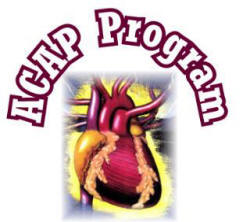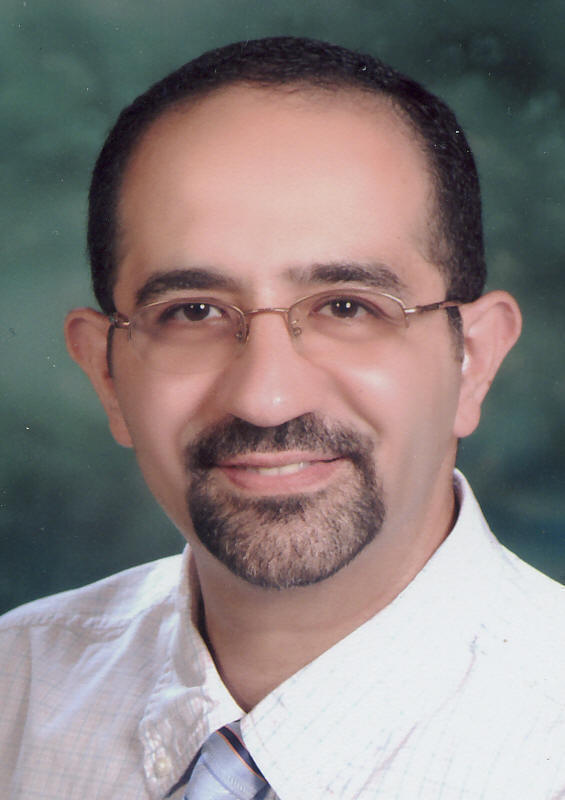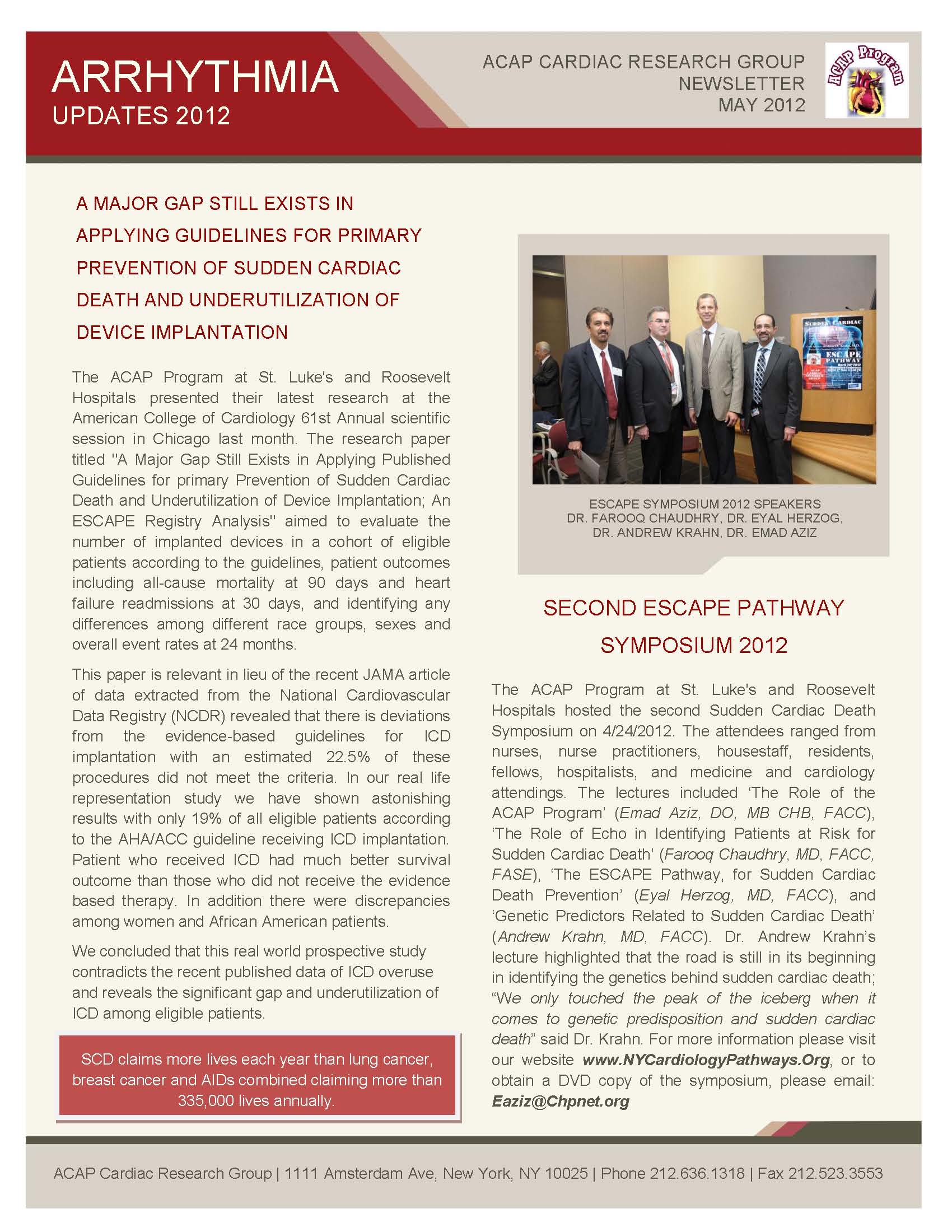

|
|
|
|
|
|

 Acute coronary syndrome (ACS) is among the most common causes of
emergency hospital admission and a major cause of morbidity and
mortality worldwide. There is approximately 1.8 million
hospitalizations for ACS in the United States; out of the eight
million presenting with chest pain in the emergency departments,
which suggests an ischemic origin. The large numbers of coronary artery disease (CAD)
hospitalization resulted in large-scale clinical trials and
registries which have provided abundant data on hundreds of
thousands of patients which resulted in defining guidelines
through evaluation of the quality of care and outcomes for
patients with ACS. These guidelines are dedicated to the assessment
of patients with ACS, have existed in the United States since
1994.
Acute coronary syndrome (ACS) is among the most common causes of
emergency hospital admission and a major cause of morbidity and
mortality worldwide. There is approximately 1.8 million
hospitalizations for ACS in the United States; out of the eight
million presenting with chest pain in the emergency departments,
which suggests an ischemic origin. The large numbers of coronary artery disease (CAD)
hospitalization resulted in large-scale clinical trials and
registries which have provided abundant data on hundreds of
thousands of patients which resulted in defining guidelines
through evaluation of the quality of care and outcomes for
patients with ACS. These guidelines are dedicated to the assessment
of patients with ACS, have existed in the United States since
1994.
Despite considerable investment in the development and nationwide distribution of guidelines, the Center for Medicare and Medicaid Services Cooperative Cardiovascular Project reported the quality of care for Medicaid beneficiaries with acute myocardial infarction (AMI) was far from optimal. Many subsequent studies have also shown similar disappointing adherence to the therapeutic recommended in published guidelines.
To address this issue, the “Advance Cardiac Admission Program” (ACAP) focusing on a critical pathways approach for risk stratification and medical management of patients admitted with ACS has been launched at St. Luke’s-Roosevelt Hospital Center. The ACAP was based on the hypothesis that simplified algorithmic approach in management of patients with cardiac disease as well as initiation and optimization of therapy according to established guidelines in the hospital setting would result in higher medications utilization both during hospitalization and longer-term follow-up and higher achievement of standard goals.
Implementation of this program involved the use of an algorithm based treatment pathways, standardized admission orders, patients education, and follow up of treatment and major adverse cardiac events. We believe that simplified risk stratification as well as prioritization and algorithmic treatment according to guidelines have the potential to significantly increase treatment utilization and improve the outcome of patients suffering from CAD. This web site will serve as an easy access to all health care providers and patients in providing information about all implemented pathways at St. Luke's-Roosevelt Hospital Center.
Eyal Herzog, MD, FACC
Director Cardiac Care Unit
St. Luke's-Roosevelt Hospital Center
Associate Professor of Clinical Medicine
Columbia University College of Physicians and Surgeons
|
|
|
|
|
|


It is with great pleasure and enthusiasm that we introduce our site NYCardiologyPathways.Org as an addition to our ACAP program. over the past 6 years and during the development and implementation stages of the ACAP program, we understood all the obstacles that exists in transforming the well published guidelines to simple practical tools for all practicing physicals that will ultimately benefit patients well being.
It is with this frame of mind that we present our experience with the ACAP program so it may be an example for other health care systems to adapt. In the web site we have included all our current pathways within the ACAP program, all applicable forms that are used by admitting physicians as well as lectures that are used to educate all housestaff. The research area include all the published pathway papers. Finally, the outcome area will include updates on the current data sets, observations and progress in patients management. We would like to welcome all to our web site, and are open to all questions and comments.
Emad F. Aziz, DO, MB ChB, FACC,
Director ACAP Cardiac Research Group
Assistant Professor of Medicine, Columbia University
College of Physicians & Surgeons
